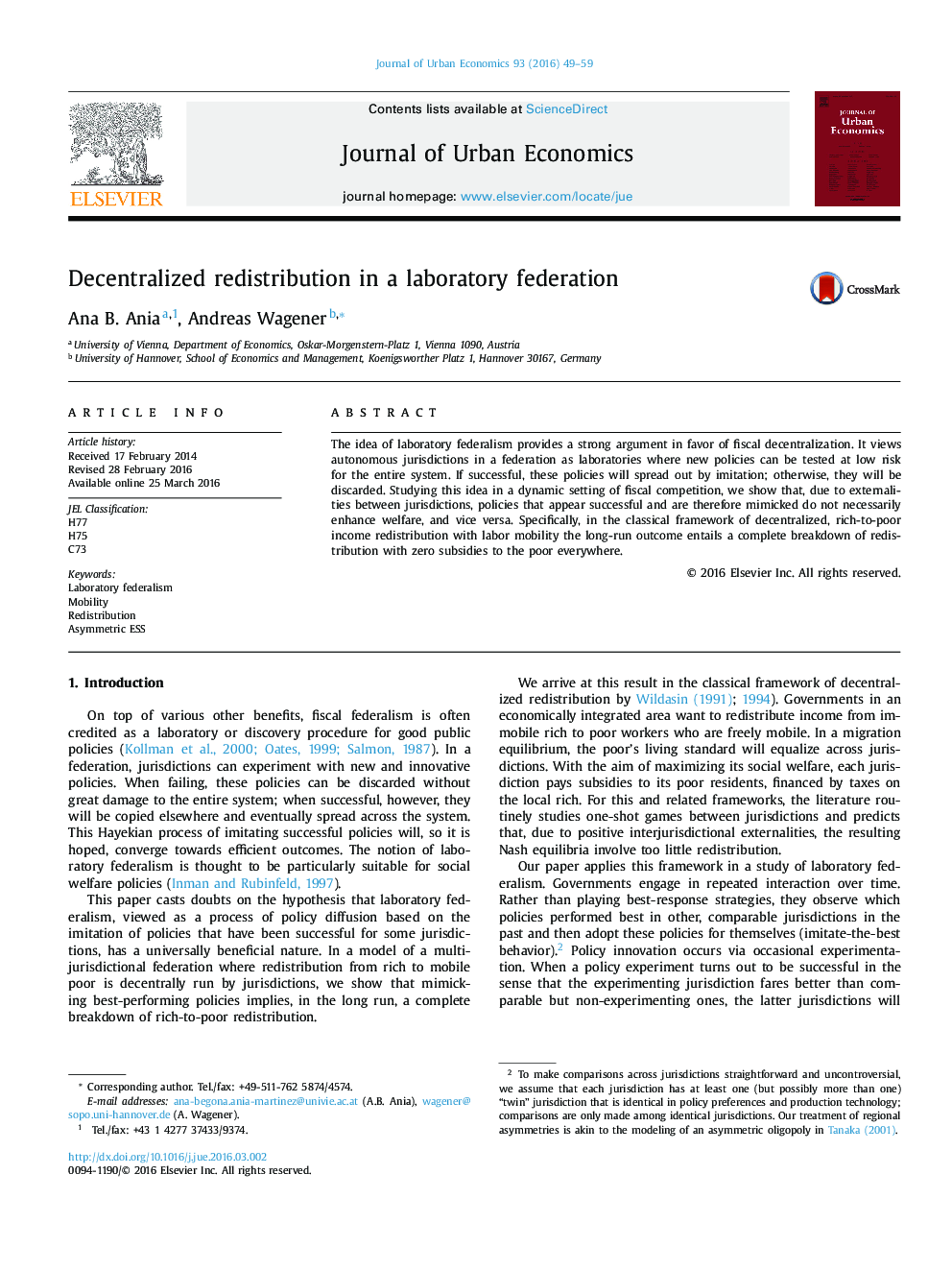| Article ID | Journal | Published Year | Pages | File Type |
|---|---|---|---|---|
| 970592 | Journal of Urban Economics | 2016 | 11 Pages |
The idea of laboratory federalism provides a strong argument in favor of fiscal decentralization. It views autonomous jurisdictions in a federation as laboratories where new policies can be tested at low risk for the entire system. If successful, these policies will spread out by imitation; otherwise, they will be discarded. Studying this idea in a dynamic setting of fiscal competition, we show that, due to externalities between jurisdictions, policies that appear successful and are therefore mimicked do not necessarily enhance welfare, and vice versa. Specifically, in the classical framework of decentralized, rich-to-poor income redistribution with labor mobility the long-run outcome entails a complete breakdown of redistribution with zero subsidies to the poor everywhere.
